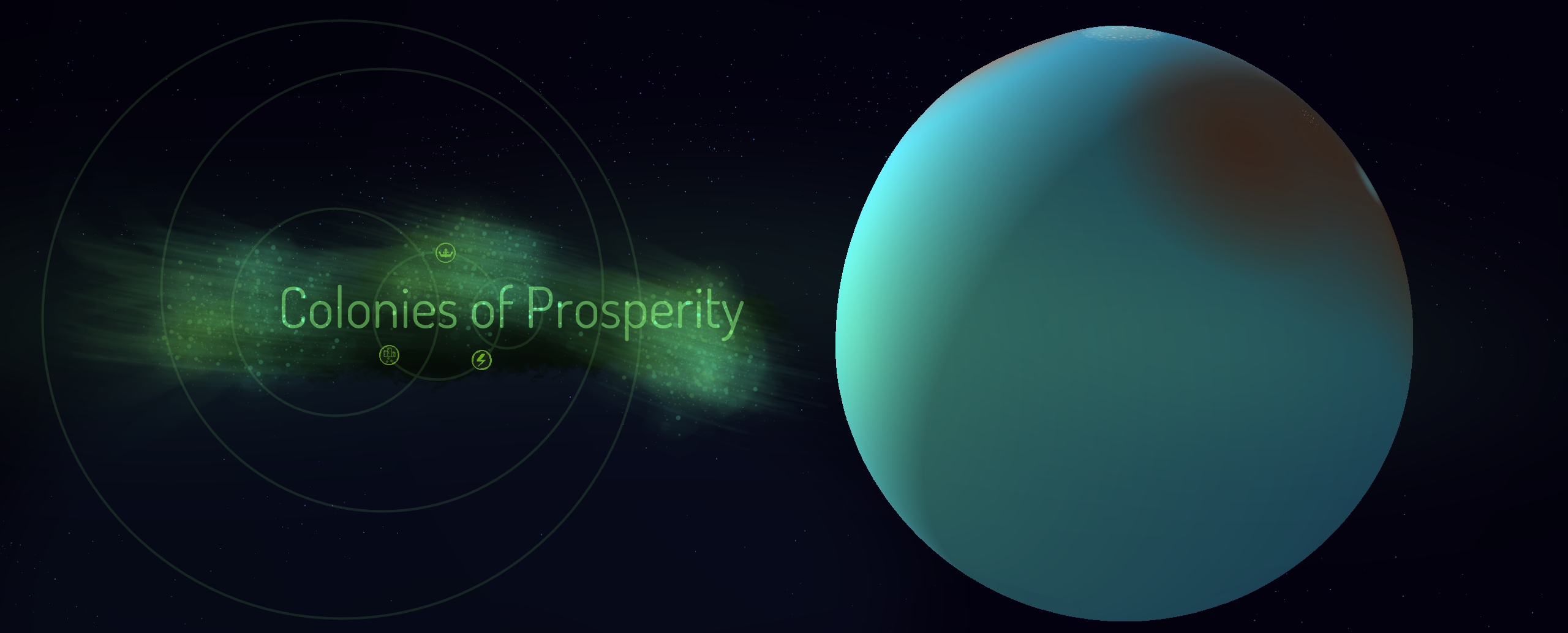Colonies of Prosperity

When the old human governments charged into space, they expected to find prosperity, thriving culture and power. They were right. The colonies prospered on new resources and technological advancements, the culture exploded on the new wave of discoveries that lay both in the outer space and the inner human self, and with all that sure came power. But that's the one thing the old governments were wrong about. The power didn't come back to them. The colonies, enriched with their findings, drunk on their success and energized by their ever fruitful life, found strength to proclaim sovereignity, some on their own, some forming interplanetary federations. It wasn't hard to stand up for their claims, after all they didn't need their previous masters anymore, it was the other way around. And it wasn't long before the old masters started fading away. In fact it felt almost as if it was nearly instant.
However, it wasn't the new governments of individual colonies and their federations that became the major powers. They held tightly onto their precious independence but they didn't become those who decided how the things in the big picture and in the most precious of little pictures are going to be. And not all colonies even retained their initial wealth and power. From the newfound prosperity of the colonies rose completely new dominant powers.
They're numerous and diverse. Yet you can clearly separate them into the three main groups. The Houses, The Corporations and The Outlaws.
Each House is a collective formed from several families, business partners, friends, associates and like-minded people. But it's more than that, it's a small society of its own. It's a strictly hierarchical society, divided in classes, governed by rules. Climbing the social ladder of a House can only be done by following the rules and it can be very hard, but it's also truly rewarding. Each House has their own rules and they're almost always competing, but only in peace. In an event of aggression or war, all Houses are bound by a pact to act as one.
Corporations are much less idealistic. Corporate life is full of work, but it's also a bit simpler. There are rules, regulations and laws to follow, but they're all relaxed in favour of one true priority: profit. Capitalistic ideals, efficiency, greed, pragmatism and sometimes ambition are the things that drive The Corporations and their workers. No more, no less. They do try to maintain a positive image, be diplomatic and stay on the good side of laws, both local and far-reaching, but the only thing that is truly constant for them is - everything has a price.
The Outlaws really have only one thing in common: they don't want to play by anyone's rules but their own. They don't feel that they owe it to any colony they visit to abide their laws, they don't care about the corporate concepts of what constitues fair business, and they most definitely aren't willing to cater to any ideals of any of The Houses. That isn't to say they don't have their own rules or ideals. Not every outlaw crew is a bunch of cutthroats who are indifferent to matters of morality or reason. Quite contrary, many of them become outlaws exactly because they follow what they think is right. And some of them just don't want to compromise their freedom for anyone or anything. So, in the big picture you're likely to find roughly as many good and bad people among The Outlaws as in the other two groups or among the simple colony-dwellers. But if you wanted to go into the details, you could further divide The Outlaws into three subgroups that represent their morality spectrum: the mafia, the mercenaries and the rogues. The mafia gangs being those the least morally burdened cruel cutthroats, the mercenaries being the cold-blooded calculating types and the rogues having the reputation of being the well-intentioned fun-loving rebels.
Those three groups are the big players now. The colonies still enjoy their relative freedom and independence, but they can at most hope to control themselves. The colonies can't resist the dominant powers from getting what they want and bending the space to their will.
But the space can also bend them.